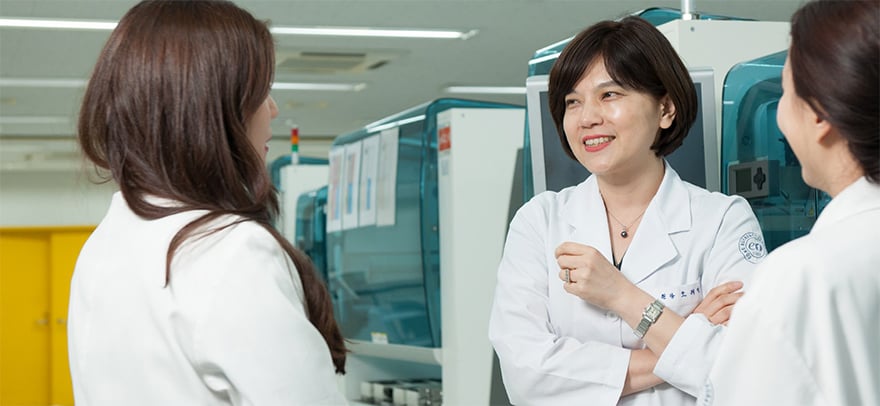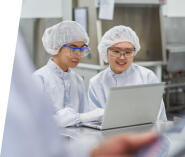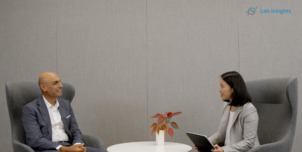As the Laboratory Director of EONE Laboratories, a large reference laboratory in South Korea, Dr Gwi-young Oh has witnessed a great deal of change in laboratory medicine over the years. In this article, she shares her perspective on how aspiring laboratory professionals can position themselves for success in a fast-evolving, and fast-growing, field.
1. Be energetic. And versatile.
A career in laboratory medicine is best-suited for people who are proactive and energetic in their personality and work style. It’s one of the reasons I was drawn to it.
Laboratory professionals must also be multi-skilled. This wasn’t necessarily the case 20 years ago. But today’s laboratory professionals must be well-versed in quality assurance, cost management, operations and data and analytics. Those who work in commercial laboratories must also have a strong grasp of sales and marketing.
Laboratory professionals must also possess the stamina to keep up with the ongoing changes in the industry, from reimbursement policies to technology developments. And as laboratories continue to partner with pharmaceutical companies, reagent companies and device manufacturers, lab professionals will need to be open to new ways of thinking and working.
2. Be a knowledge-seeker.
New developments emerge in laboratory medicine almost daily. Smart laboratory professionals seek out opportunities to stay abreast of the very latest developments and trends.
This includes, of course, attending conferences and keeping up with trade publications. But it’s not enough to focus on laboratory medicine alone. In this era of integration, one must stay up to date with happenings in other major medical fields, from internal medicine and paediatrics to orthopaedics and obstetrics and gynaecology.
The most successful laboratories instill a culture of continuous learning in their employees. At EONE, we conduct monthly conferences where medical doctors provide education and training to our laboratory staff, including our sales team. And our most experienced and promising staff members travel to overseas conferences annually, where they get a global view of the industry’s evolution.
3. Be an advocate.
More than ever, our field needs champions. A misperception persists that laboratory medicine is a service function; that it operates in a passive fashion and isn’t particularly profitable. Of course, this couldn’t be further from the truth. But perception, as they say, is reality. Therefore, we must work toward a future where laboratory professionals receive the respect—and compensation—they deserve.
Laboratory professionals should advocate tirelessly for the profession, educating their colleagues and peers on the value they add to the healthcare landscape. Indeed, far from being a back-end processing unit, laboratories play a critical role in the fast-growing areas of personalised and precision medicine.
Current laboratory professionals should also seek to mentor medical students and young technicians. It is our responsibility to promote our discipline, and make it an attractive option for the medical professionals of tomorrow.
4. Prepare for the future.
The laboratory medicine landscape has changed dramatically since I started at EONE in 2013. Automation has emerged as a powerful tool, increasing turnaround time and improving lab profitability. Genetic testing is continuing to help make medicine more personalised, helping to guide dosage and determine drug efficacy. Artificial intelligence and big data will continue to aid in decision-making around re-testing and re-calibration.
Investing in these new tools and technologies—and the human resources to use them—come at a significant expense. But making the investment is an existential necessity. Those labs which adapt too slowly will end up playing catch-up. And in this highly competitive era, it’s better to be too far ahead of the curve rather than too far behind it.
5. Have fun.
I entered the field of laboratory medicine because I find it fascinating. And, yes, fun.
Every morning, I wake up between 4:30 and 5:30 a.m. excited to go to work. During my commute, I think about what I am going to do that day. I look forward to reviewing the results the overnight staff has left for me.
Yes, it’s a discipline that requires a great deal of energy and a willingness to adapt to new developments at lightning speed. In such a frenetic environment, it’s important—and perhaps even critical—to deeply enjoy your work.








